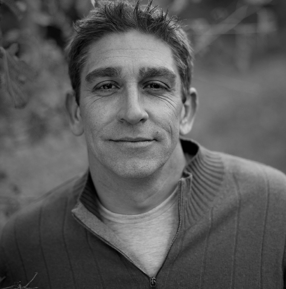Como Tú / Like You / Like Me
{for the D.A.C.A DREAMers and all our nation's immigrants}
. . . my veins don’t end in me
but in the unanimous blood
of those who struggle for life . . .. . . mis venas no terminan en mí
sino en la sange unánime
de los que luchan por la vida . . .—Roque Dalton, Como tú
Como tú, I question history’s blur in my eyes
each time I face a mirror. Like a mirror, I gaze
into my palm a wrinkled map I still can’t read,
my lifeline an unnamed road I can’t find, can’t
trace back to the fork in my parents’ trek
that cradled me here. Como tú, I woke up to
this dream of a country I didn’t choose, that
didn’t choose me—trapped in the nightmare
of its hateful glares. Como tú, I’m also from
the lakes and farms, waterfalls and prairies
of another country I can’t fully claim either.
Como tú, I am either a mirage living among
these faces and streets that raised me here,
or I’m nothing, a memory forgotten by all
I was taken from and can’t return to again.
Like memory, at times I wish I could erase
the music of my name in Spanish, at times
I cherish it, and despise my other syllables
clashing in English. Como tú, I want to speak
of myself in two languages at once. Despite
my tongues, no word defines me. Like words,
I read my footprints like my past, erased by
waves of circumstance, my future uncertain
as wind. Like the wind, como tú, I carry songs,
howls, whispers, thunder’s growl. Like thunder,
I’m a foreign-borne cloud that’s drifted here,
I’m lightning, and the balm of rain. Como tú,
our blood rains for the dirty thirst of this land.
Like thirst, like hunger, we ache with the need
to save ourselves, and our country from itself.
Copyright © 2019 by Richard Blanco. Originally published in Poem-a-Day on March 9, 2019, by the Academy of American Poets, from How to Love a Country (Beacon Press, 2019).
"In September 2017, President Trump’s administration decided to repeal D.A.C.A. (Deferred Action for Childhood Arrivals), the policy that allowed children brought to the United States illegally to receive deferred action from deportation. I began to contemplate their circumstances in light of my own. Having arrived here in my mother’s arms when I was only forty-five days old, I wasn’t a legal citizen of any country until I was 17-years old. Luckily, I was at least a documented immigrant. But what if I had not been? What if I had to live with the fear and threat of being deported to Cuba, my parents’ homeland, which I knew only through my cultural imagination? These reflections inspired this poem, from my new book How to Love a Country, written to stand in solidarity with the plight of all D.A.C.A. children as brethren who belong to two countries, yet none; who are caught in the crossfire of politics and the crosshairs of bigotry without any legal right to have a say in the determination of their destinies."
—Richard Blanco

